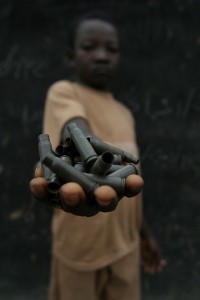Learning Through War: The Refugee Children of Syria, Croatia and Beyond

Zagreb, Croatia, 9/29/2015
All month long, the Syrian refugees have been flooding my news feed and TV screen. I have a strong need to leave the political aside, to see them for who they are: humans. A World At School website says:
Children trapped in conflict zones are the most neglected and forgotten in the world.
… There are now over 1 million Syrian child refugees – many of whom are now being denied food, shelter, and, for the vast majority, an education.
Innocent victims of the Syrian crisis, these children are being denied a childhood that can never be relived.
… So how do you make up for a lack of early education? Is this a generation of bright brown eyed children doomed to stay ignorant due to circumstance? Or is the long journey they are undertaking an education in its own right, one more valuable than the likes of chalk-and-blackboard type could provide?
I do not pretend to know the answer, yet let me tell you a story. When I started first grade in 1991, my country was living through its own war. The first lesson I remember receiving from my old-school mother-figure teacher was practicing classroom evacuation and the clear instructions on what to do during an air raid. I payed close attention. It wasn’t like there’d be a makeup test on if you fail to comply and get stuck under the rubble of a grenade on your first try. This was important stuff.
My mother came home after a PTA meeting one night, distressed and saying I would never learn anything, because all that the teachers wanted to talk about was how we should never take our shoes off in the classroom so we could run when needed. As if we were in school to train for a marathon, not to learn the basic reading, writing and arithmetic.
And yet, this abc, 123 type of learning happened, somewhere in between the emergency exit routines. I cannot say I missed out on much, or that much was taken from me by the war. It was so, so much worse for some. The girl behind me, who kept bugging me to lend her my eraser, was a refugee. Her father had died during the bombing of Dubrovnik, and she was staying in shelter housing across the street from me. She had the biggest smile on her face; I knew so little about the world at 6 and yet this smile baffled me. There was a silent question mark in my mind as to HOW? — How was she actually able to sit there, drink cocoa and eat Twix with us during snack time and excitedly show us her new hair band, while her life had turned inside out?
But years later I’ve come to conclude that in a child’s mind, things are imminent. Someone dies, you move villages, cities, sometimes countries, continents – life goes on. You are young enough still to adapt to the change, to learn a new dialect, a new language. Your parents are left disoriented, hanging on to their customs, making coffee the wrong way, saying the inappropriate, reminding everyone of loss and regret, merely by their presence on the block. But not the children. The little Syrian children, and the little Croatian children and the little children of all the adults fighting their wars, pursuing their causes – they walk along with their plastic bags, they do their abcs, they draw their colorful pictures and they have their lives, as enigmatic and beautiful, as large and promising, as all of ours, spreading out in front of them.
Iva Ticic completed her MFA at Sarah Lawrence College in 2014. She is originally from Croatia where she currently resides and teaches ESL, Creative Writing and Public Speaking at a private college.
Her chapbook, Alice in Greenpoint, is forthcoming from Finishing Line Press. You can order it here.